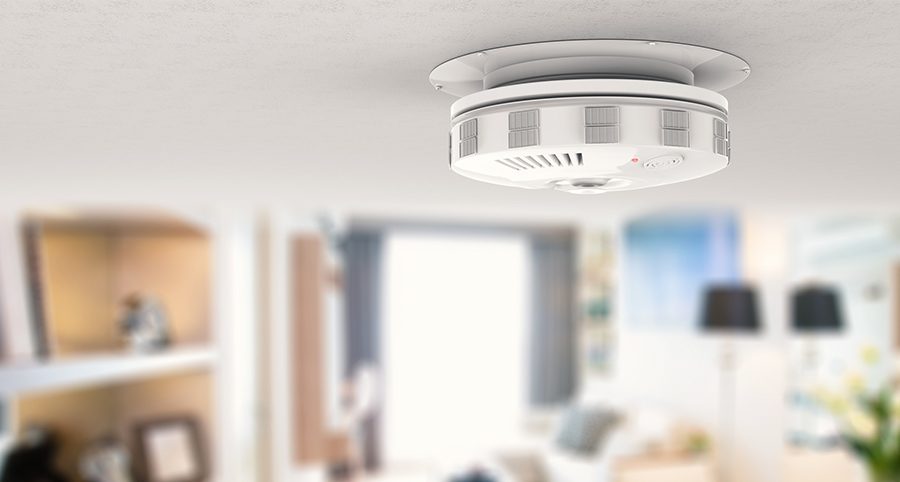Is there a difference between traditional smoke detectors vs. monitored fire alarms in Jackson?

In the Jackson smoke detector vs. monitored fire alarm debate, there’s really only one winner. Smoke detectors are an essential line of defense in protecting your residence from a dangerous blaze, but they have several drawbacks. Alternatively, monitored fire alarms have more ways to detect an emergency and are able to reach out to a monitoring team when the unthinkable happens. Linking your fire alarms to a home security system also delivers many other perks that your common smoke detectors can only dream about.
The limitations of ordinary smoke alarms in [[targetlocaion]]
Protecting your home from fire is a chief concern for homeowners, and smoke detectors play a critical part in safeguarding your family. Even so, smoke detectors have various drawbacks. For instance, they are only able to detect smoke, not extreme temperatures. When there is a blaze starting in your residence, you would not be warned until the smoke rises to the smoke detector. Although there are further unmistakable signs of fire -- like a sudden increase in warmth -- if you don’t have smoke, there is no triggered smoke detector.
What’s more, smoke detectors only sound the alarm when they find an adequate amount of smoke. In the event a fire begins slowly, you may not be cautioned until the situation is out of hand. Many smoke detectors utilize dual-sensor technology, which means they will be able to perceive smoke from both a raging fire and something less intense. Whenever they sound their alarm, it’s required of the homeowner to contact emergency services after safely leaving the residence.
Monitored fire alarms provide more value than regular smoke detectors
Even though they look like standard smoke detectors, monitored fire alarms have added advantages. If linked to a comprehensive home security system, they will:
- Detect fire with multi-sensor technology: Comparable to a standard smoke detector, this monitored component will trigger from an intense fire or one that has just started smoking. It will resonate a high-volume alarm if it recognizes danger.
- Identify fire with a sudden heat surge: A monitored fire alarm can even trigger if it senses an uncommon heat surge. Typically, heat is noticed prior to smoke. Having additional methods to uncover a fire leads to additional means to keep your family safe.
- Warns your dedicated monitoring agents: Fires can happen whether you are at your house or not. Regardless, your fire alarms will alert your monitoring team, who can rapidly contact first responders. When every moment matters, it's great to realize that someone is constantly watching over your house.
- Pairs with home automation: Although the main task of a fire alarm is to recognize fire and notify help, it can also integrate with other automated devices. For example, a activated alarm might induce your system to start the exhaust fan to slow the spread of fire or trigger the lights so you can see the safest path out of your home.
Your monitored fire alarms are a key element of a complete smart home
The simplest way to maximize the functionality of your fire alarms is to pair them with a Vivint home security system. Contact a Vivint specialist today and discover the perfect smart home for your needs. Place a call to (601) 607-9990 or send in the form on this page to take the first step toward a safer property.